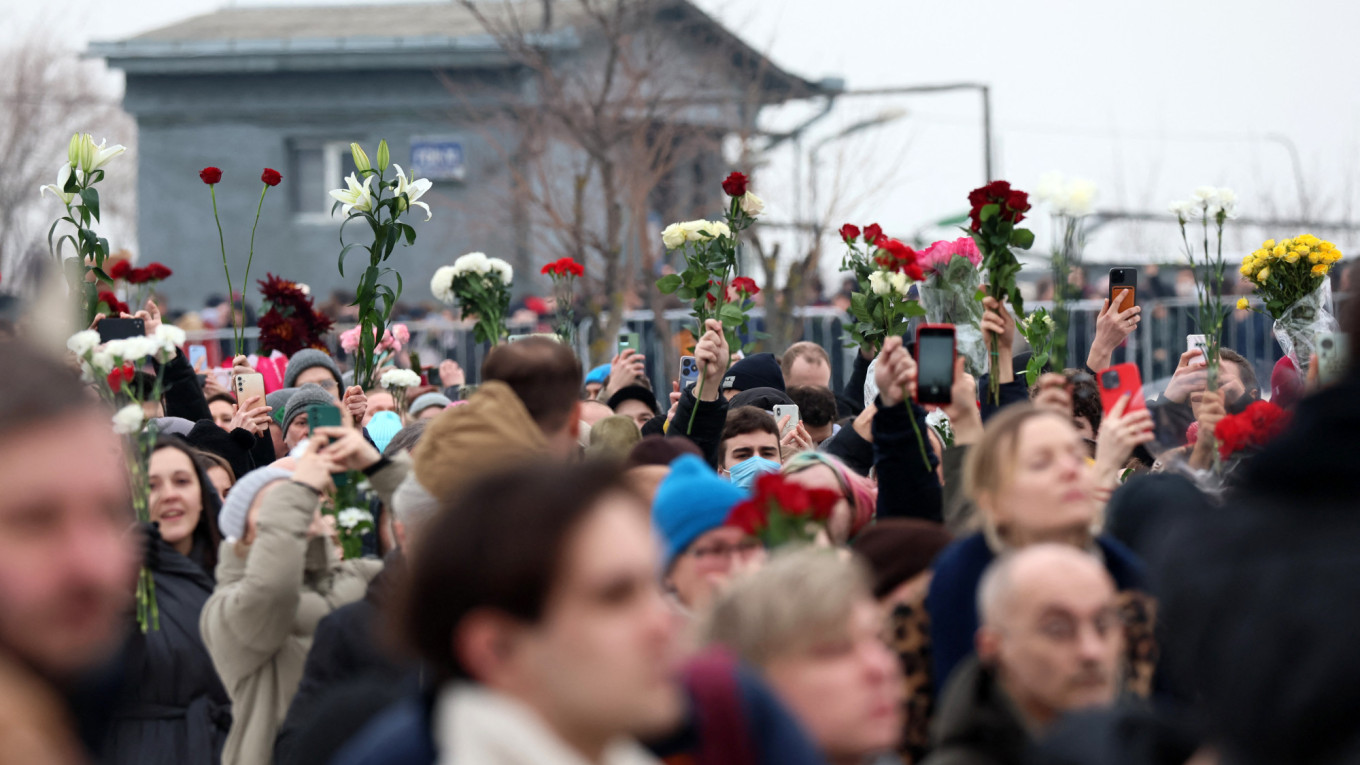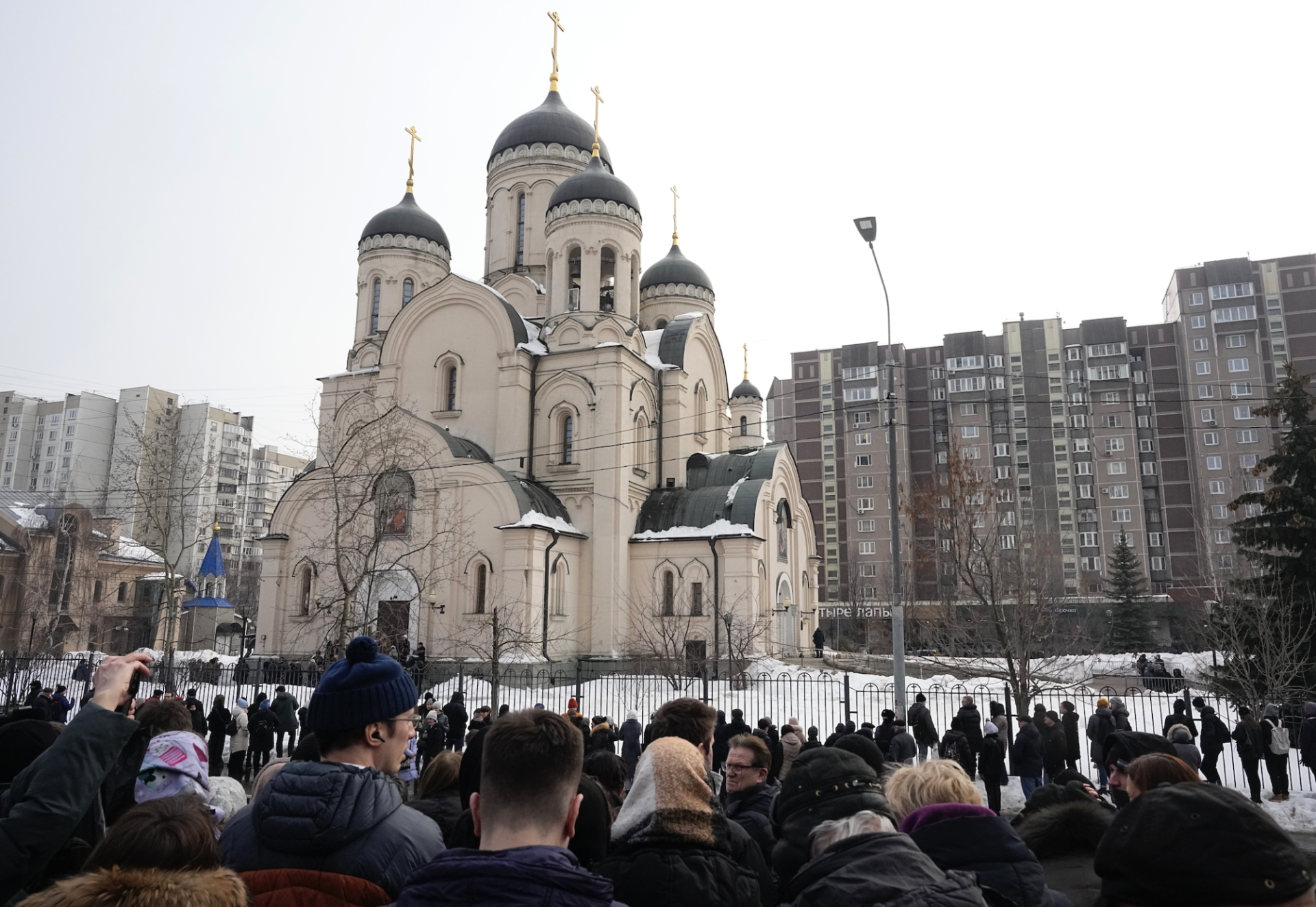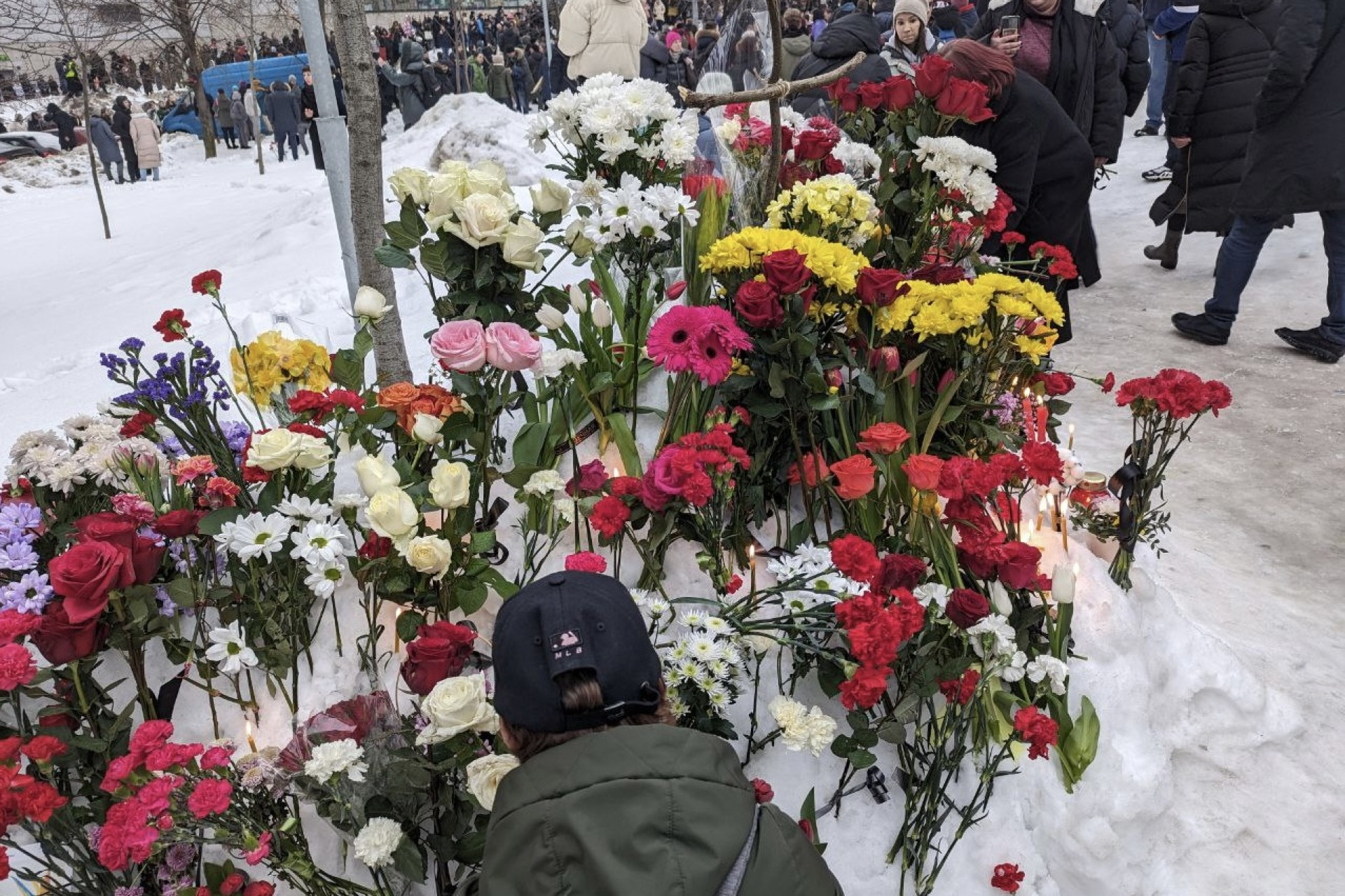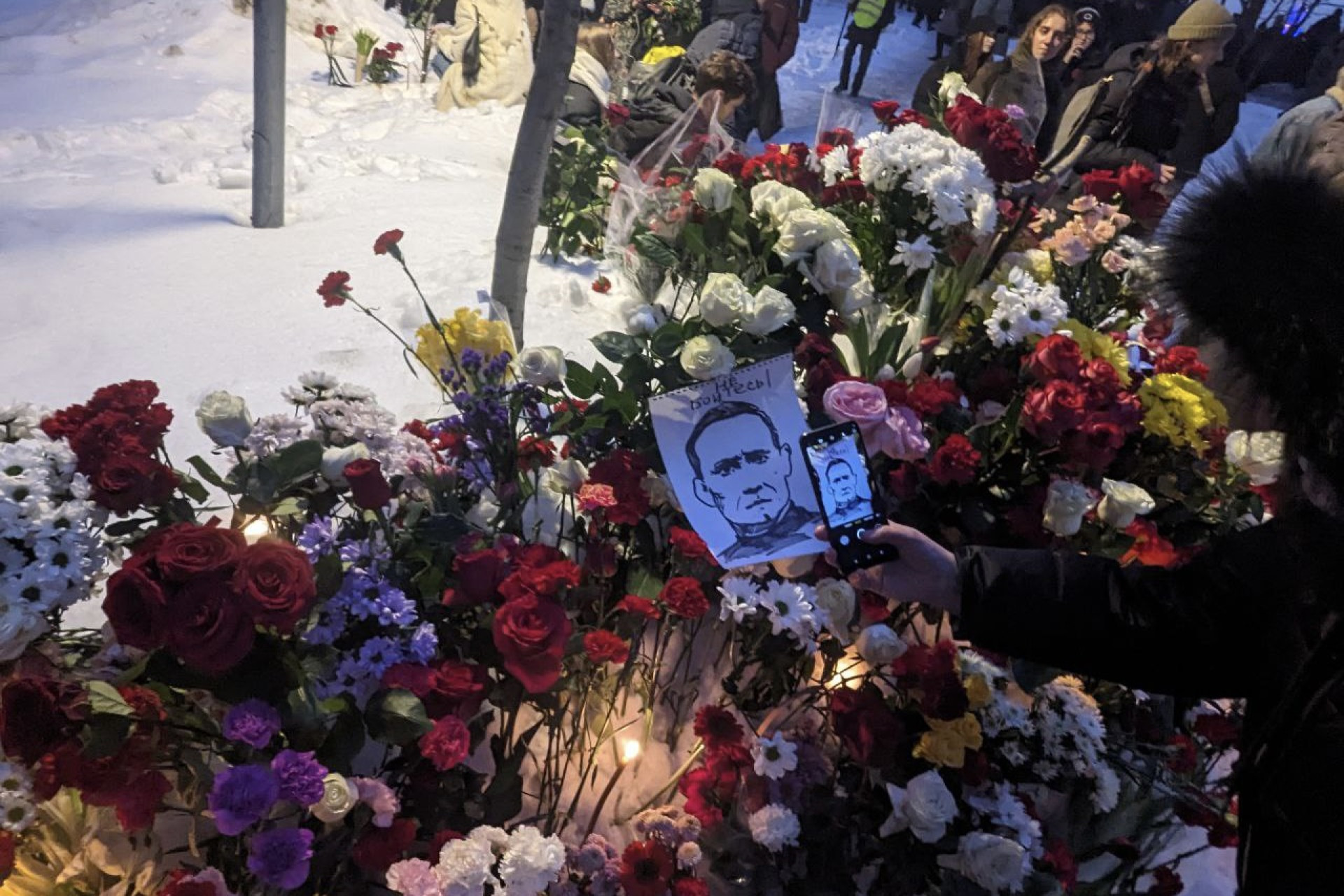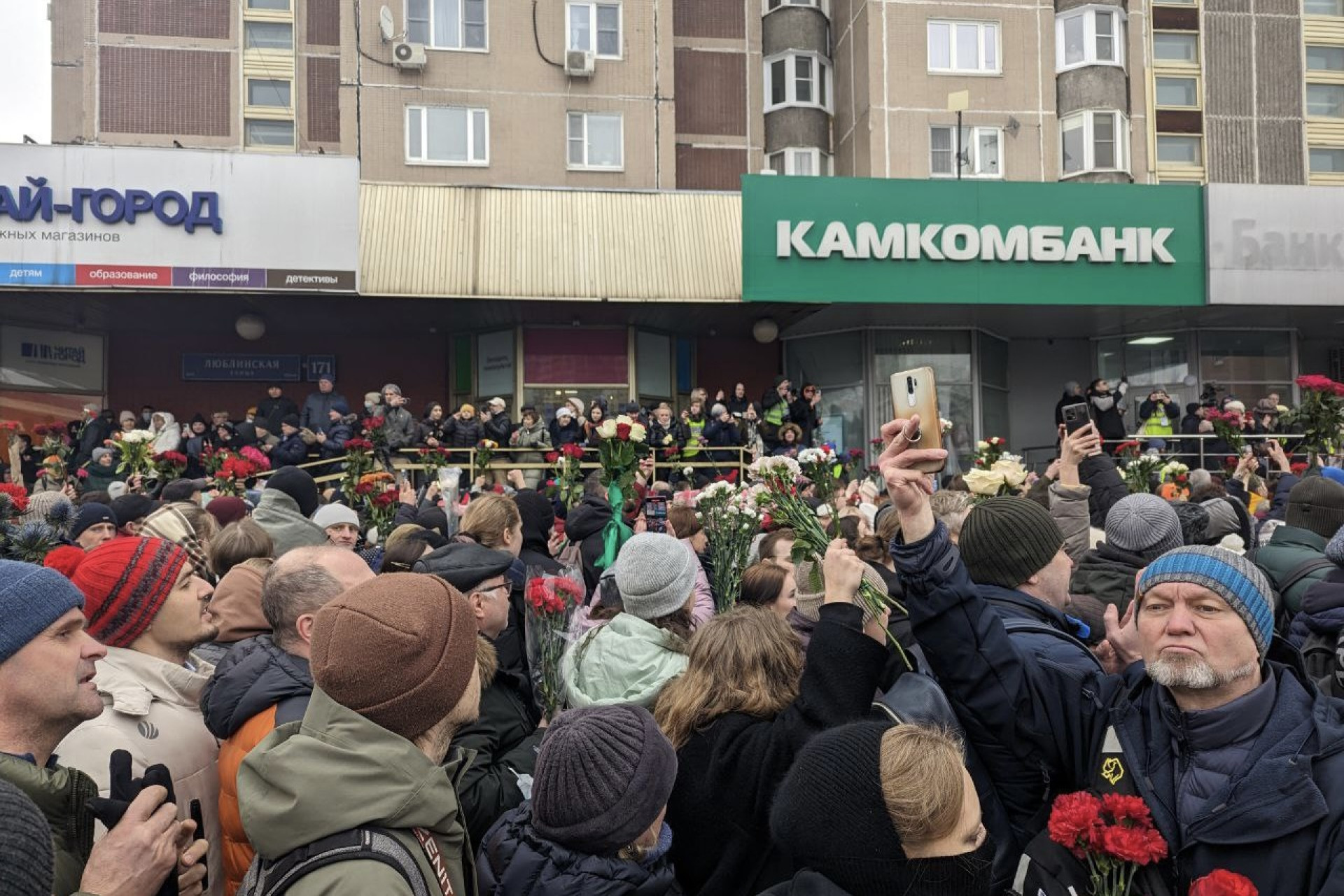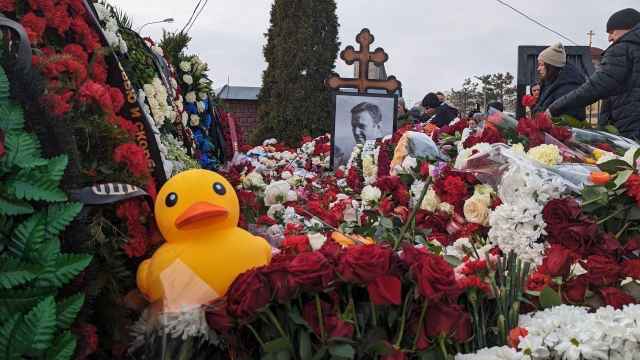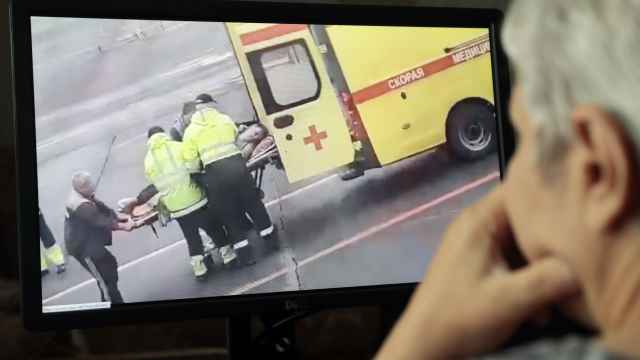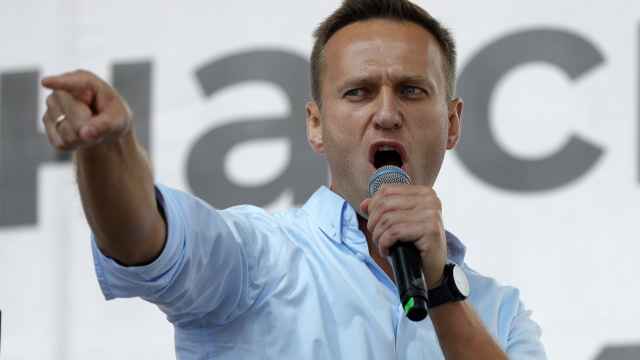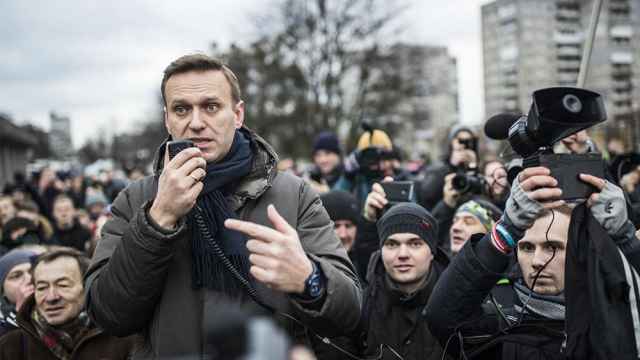Thousands of mourners gathered in Moscow on Friday to say goodbye to the late opposition figure Alexei Navalny, the Kremlin’s most prominent critic.
“I glanced back and found myself unable to see where the crowd ended — it seemed to stretch on forever,” said Vadim, who attended the funeral ceremony.
Despite the risk of detention, official warnings and a heavy police presence, thousands of Navalny’s supporters gathered at the Russian Orthodox church and nearby cemetery in southeastern Moscow where his funeral was held to honor his legacy.
“I came today to see for the last time a man like no other in this country, and in the whole world,” said Nadezhda, 69, who was standing at the church’s entrance with a large bouquet of roses.
A former volunteer at Navalny’s Anti-Corruption Foundation, Nadezhda remembers how Navalny’s blog first sparked her interest in politics over a decade ago.
“For me personally, he was the hope for a different life in this country,” she said with tears in her eyes. “We became orphans [when he died].”
With Navalny’s team and thousands of his supporters in exile due to a sweeping political crackdown, holding a funeral for President Vladimir Putin’s adversary was always going to be fraught with risk.
Following his death on Feb. 16, hundreds of mourners across the country were detained while laying flowers at makeshift memorials.
Ahead of Friday’s funeral, Kremlin spokesman Dmitry Peskov warned that any unauthorized demonstration in Navalny’s support would be considered a violation of the law and that participants would be held accountable.
The mood in the Kremlin has been one of anxiety in recent weeks despite Putin’s near-guaranteed re-election this month, two high-ranking sources in the Russian government who spoke on condition of anonymity told The Moscow Times.
Following Navalny’s death, the Kremlin held a series of meetings with senior FSB and Interior Ministry generals to plan how to prevent the funeral from capturing the public’s attention, the two sources said.
“The Kremlin does not want a picture similar to the rally at [Soviet dissident Andrei] Sakharov's funeral. Therefore, the special services are working according to their plan,” a Russian official who formerly worked for a security agency said.
State media was also ordered to ignore the funeral, a source close to the Kremlin and the manager of a major Russian media outlet said.
Starting early in the morning, the area surrounding the church was under heavy surveillance by law enforcement. Several police vans were parked next to the church as riot police cordoned off the church’s entrance.
Moscow Times reporters in the area reported widespread disruptions with cellular and mobile internet service which appeared to be linked to special antennas installed Thursday. Masked agents in civilian clothes were seen monitoring the crowd.
“I'm afraid, of course, but despite the fear, a man died in prison and we are here,” said Maxim, a 37-year-old doctor.
“It’s the least we can do,” he continued.
Maxim said he used to believe Navalny was a puppet manipulated by the Russian authorities. But Navalny’s 2021 return to Russia after recovering from a near-fatal poisoning — despite the certainty of being jailed — changed his mind.
“That was the best demonstration that this person was actually doing something right and important,” he said.
Inside the Church of the Icon of the Mother of God Soothe My Sorrows, a small crowd of mourners surrounded Navalny’s casket. A choir sang as the priest performed the traditional Orthodox memorial service.
Lyudmila, Navalny’s mother, sat near the casket, holding a candle and staring at her son.
Among the mourners was a young woman holding a portrait of Navalny in a gold frame and a book titled “The Saint Vs. The Reich,” the story of a German Orthodox student who resisted the Nazis.
A few masked men, likely law enforcement agents in civilian clothes, observed the scene.
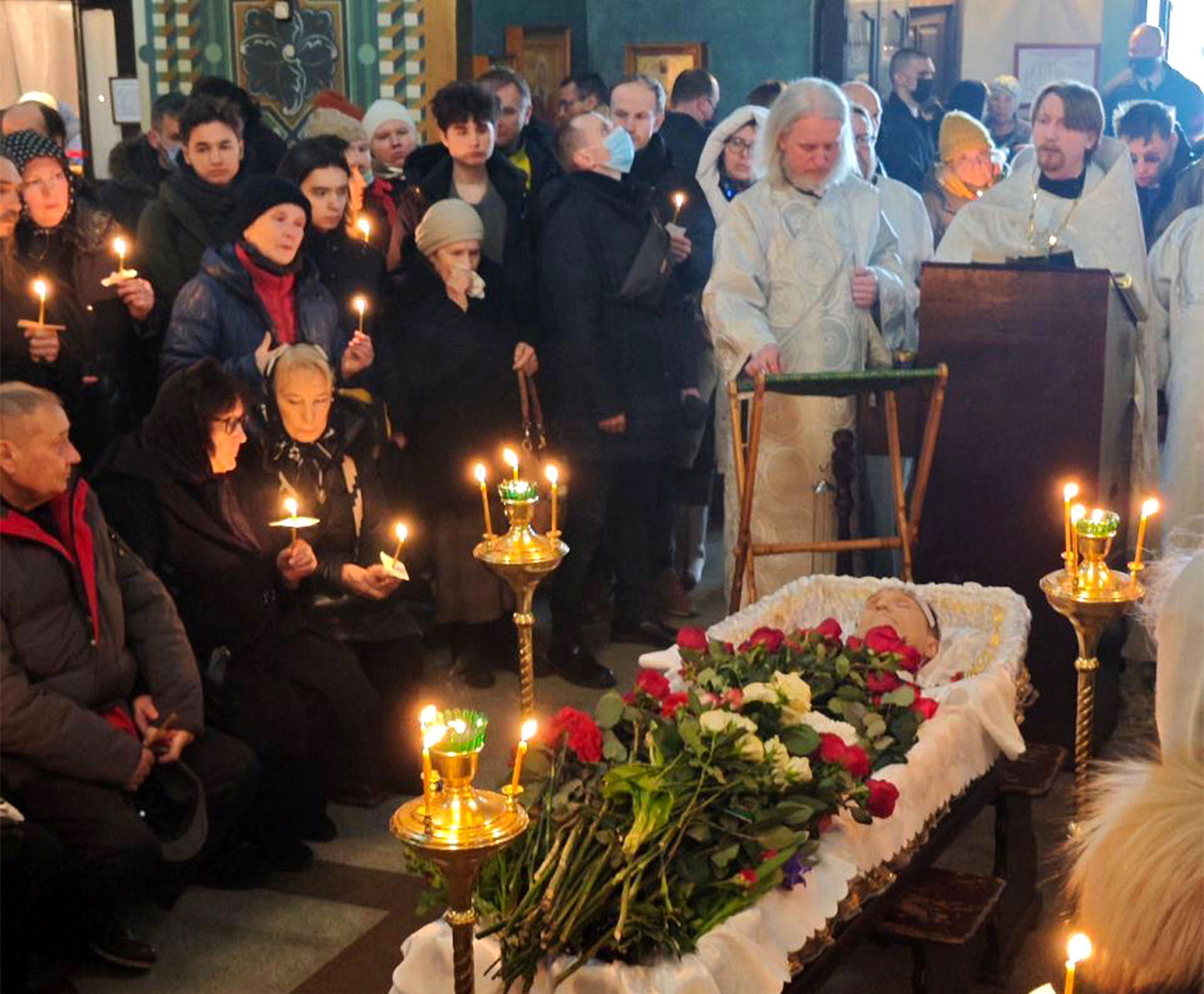
Navalny, 47, died on Feb. 16 in the “Polar Wolf” penal colony in the Arctic where he was serving a 19-year sentence on extremism charges that were widely deemed politically motivated.
His close associates and wife Yulia Navalnaya have publicly accused the Kremlin of being behind the politician's murder.
Foreign diplomats, including the French, German and U.S. ambassadors, attended Navalny’s funeral. Anti-war presidential hopeful Boris Nadezhdin and former Yekaterinburg opposition mayor Yevgeny Roizman were also present.
“People like him are born once in a hundred years,” says Alexander, 69, a Russian literature teacher, of Navalny. “With such a strong soul, they are sent by God.”
When the black hearse with Navalny’s body finally arrived at the church at around 2 p.m., the crowd started clapping and chanting Navalny’s name.
“Navalny is alive!” someone shouted.
The police then started allowing people into the church in small groups through metal detectors. A masked officer at the entrance filmed people as they entered.
Outside the church, people chanted slogans like “Lyosha, we are with you,” "Freedom for political prisoners," "Russia will be free," and "Russia without Putin."
As the ceremony ended, the casket was immediately covered and carried away despite people’s protests.
“Let us say goodbye!” they shouted.
“I’ve never seen something like this,” one of the mourners said. “They killed a man and don’t even let people say goodbye — that’s real Satanism,” he said, referring to the Russian authorities.
“They even violate God’s laws,” a woman next to him said.
Navalny’s allies accused the Kremlin of thwarting their plans to hold a separate civic ceremony in a larger venue that could have accommodated more people.
The funeral was initially planned for Thursday, but Navalny ally Ivan Zhdanov claimed that every funeral home in Moscow had refused because of Putin’s address to the Russian parliament that day.
Navalny’s spokeswoman Kira Yarmysh said the Russian capital’s funeral services received threats from unknown individuals not to transport Navalny’s body to the church.
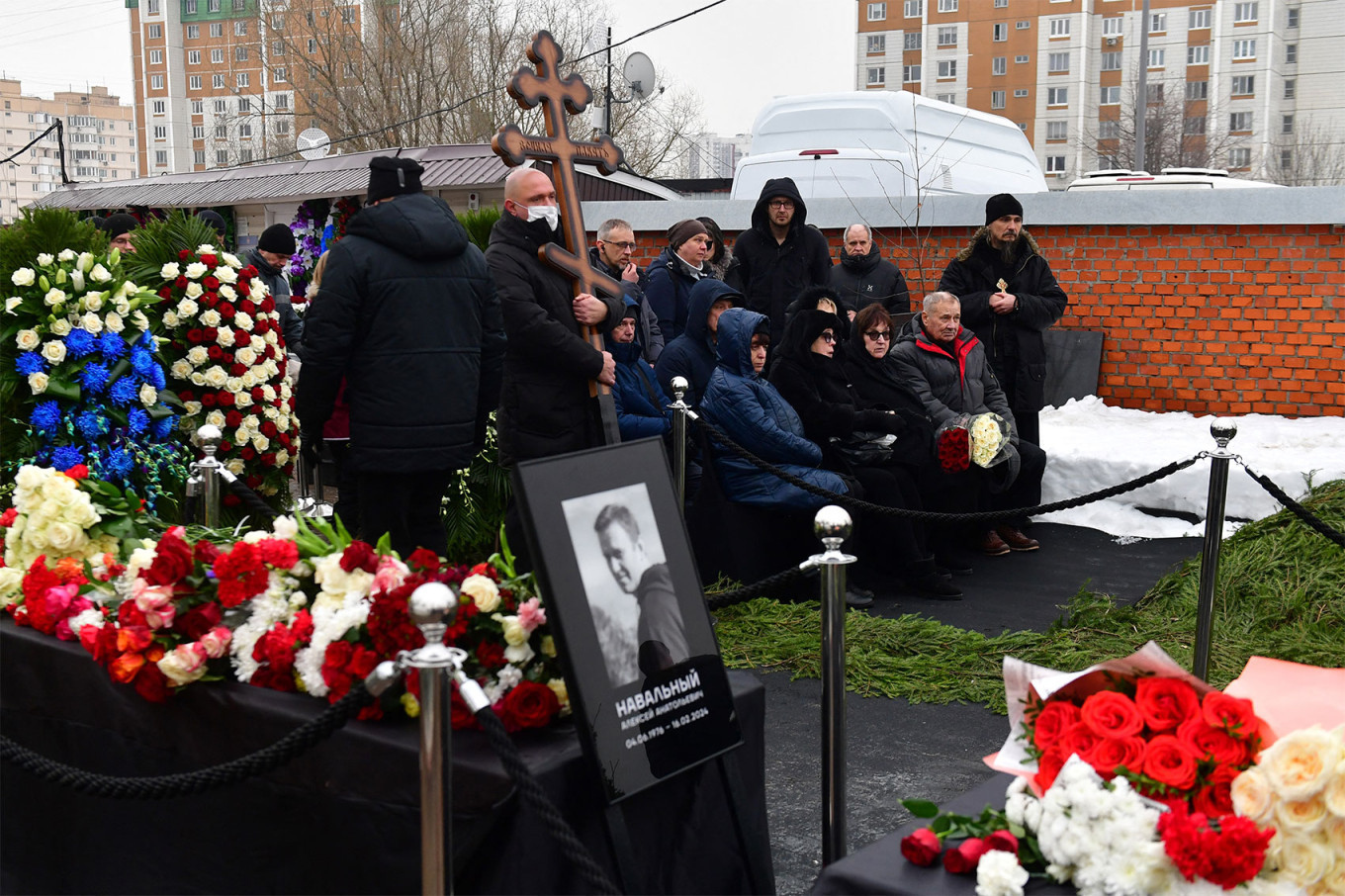
As the ceremony ended and Navalny’s body was carried from the church, thousands of people continued to chant Navalny’s name and “We won’t forgive!”
Mourners outside the church tossed flowers at the hearse carrying Navalny's coffin as it departed for the cemetery.
“Thank you,” a voice in the crowd shouted.
As Navalny’s mother paid her last farewell to her son before his burial, the funeral orchestra played Frank Sinatra’s “My Way.”
It was followed by the final theme from “Terminator 2” — which Navalny considered “the best film in the world,” according to Yarmysh.
“After the death of Alexei Navalny, I lost hope [for a better future] for some time. But as Navalny said, we should not give up,” one Muscovite said.
“This should be the motto we must live with in modern Russia — hope never dies.”
A Message from The Moscow Times:
Dear readers,
We are facing unprecedented challenges. Russia's Prosecutor General's Office has designated The Moscow Times as an "undesirable" organization, criminalizing our work and putting our staff at risk of prosecution. This follows our earlier unjust labeling as a "foreign agent."
These actions are direct attempts to silence independent journalism in Russia. The authorities claim our work "discredits the decisions of the Russian leadership." We see things differently: we strive to provide accurate, unbiased reporting on Russia.
We, the journalists of The Moscow Times, refuse to be silenced. But to continue our work, we need your help.
Your support, no matter how small, makes a world of difference. If you can, please support us monthly starting from just $2. It's quick to set up, and every contribution makes a significant impact.
By supporting The Moscow Times, you're defending open, independent journalism in the face of repression. Thank you for standing with us.
Remind me later.




